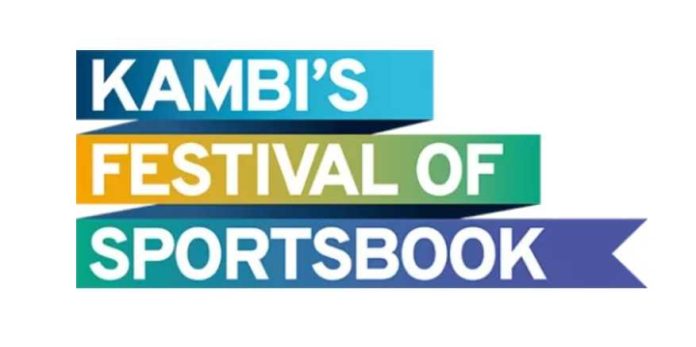Kambi’s Festival of Sportsbook literally covered the globe this week with panels on a range of different markets, including tribal gaming. While the mainstream commercial operators dominate the discussion and the market share, the panel, titled The Path to On-Property Sportsbook Success for Tribal Gaming Operators, took time to discuss how tribes can participate in the industry, particularly at the retail level.
Senior Director of Sales for Kambi David Bretnitz moderated a panel comprised of the following people:
Potawatomi Casinos & Hotels CEO Dominic Ortiz
Vetnos Chief Gaming Officer Valerie Spicer
Desert Diamond Casinos Sports Betting Director Laurel Pittman
“I think for years the focus has always been about the online opportunity, moving everything online. But lately, the focus really has shifted for operators to the retail side of things and the value of the on-property sportsbook and what that experience provides. While our industry typically gauges success based on handle, GGR, and other kinds of financial metrics, I think the real success comes from the experience that you create across all of those verticals and how they can help each other,” Bretnitz said, setting the stage for the topic at hand.
Success comes in different shapes in sizes, as indicated by the panel’s collective experiences. For example, Ortiz and Potawatomi are in the advantageous position of having exclusivity in a major metropolitan area like Milwaukee. Knowing those advantages influenced the choices the group made to bring in a white-label solution as opposed to syncing up with an operator.
“Our initial assessment is you’ve got a monopoly 30 years in a major metropolitan area with a massive database and your ability to harness that power and engage your customers for us, out the games, it was obvious that we wanted to find a premier partner like Kambi to get to put our own brand and wrap that around and be able to do business the way we want to and protect the integrity of our database,” Ortiz explained.
Along with that, Potawatomi rethought the entire floorplan in the attemp to desing a marquee, “destination” retail sportsbook. The poker room is being relocated to be adjacent to the sportsbook and they are implementing a new kitchen as well.
Ortiz noted that his group was in a very advantageous and unique position so this approach is not necessarily the way all tribes should attack sports betting but he did caution that every tribe needs to have a plan in place for how to approach the vertical.
“Five years ago a lot of us in the tribal space were watching it starting to come on board and start to approach our outer markets. It may not have been in the exact state but now, fast forward, more than likely as a tribal gaming operator, if it’s not in your state, it’s on your borders,” he said. “From a sports betting revenue perspective, you’ve got to keep up with the amenities and each tribe because they’re unique, have to look at their situation and understand what the right business strategy will be for you.”
Tribal operators in Arizona were facing far more headwinds than the Potowatomi, most importantly direct competition with commercial operators who had an advantage over their tribal counterparts.
“When the licenses were given for the leagues, there’s only so many leagues and more licenses than leagues, so they were ready to go and they hit the ground running. In the case of the tribes, they were waiting to see who was going to get a license and being put in that position, put them behind the leagues getting into the market because they were waiting to see if they were going to get a license or not,” explained Spicer. “So the league’s had a little bit of a jump on the tribes and we all know first to market gaining market acquisition of customers plays a big role. So that definitely made it a little more difficult and challenging for the tribes.”
The uncertainty around even getting a license impacted Desert Diamond.
“You can sell that mobile license, which every other tribe did, sell that off-reservation mobile license, or you can keep it yourself and operate it yourself. And the way to do that is with a white label partner that’s going to let you put your name, put your brand that’s been tried and true and tested in the state and have that be your marketing strategy,” Pittman said.
Having faith in that marketing strategy was important too, especially in the face of the huge marketing push that came with launch.
“The go live was the same for retail and mobile here in the state, so it was challenging getting those players. Every player is going to get every app they’re gonna get all their welcome bonuses, they’re gonna get everything, but once that’s over, keeping them with name, they’re already Desert Diamond players, they may as well be Desert Diamond mobile players
Conversely, the property is gaining new customers who were introduced to the brand through the app and were motivated to become a brick and mortar customer as well.
Spicer echoed what Ortiz and Pittman observed, which is that some of the benefits of sports betting are not clearly visible on the sportsbook revenue report.
“It’s the same way I used to talk about poker. There may not be as revenue generating as some other departments, but they’re bringing their wives and they’re gonna go play on the slots. They’re all gonna go eat afterwards. So you have to look at secondary revenue,” she said.
What the panel also agreed on was that, while sports betting is the hot new amenity, tribes should take heed not to expect a massive influx of cash. Instead of expecting sports betting to pad the bottom line, expect it to be something that can augment your casino property. It can be an experience that brings in new customers as well as something that can re-energize existing customers’ interest in the brand. But the value it brings is something tribal properties should understand are not always black and white on the balance sheet.
You can watch the full recording of the Kambi Festival of Sportsbook here.














